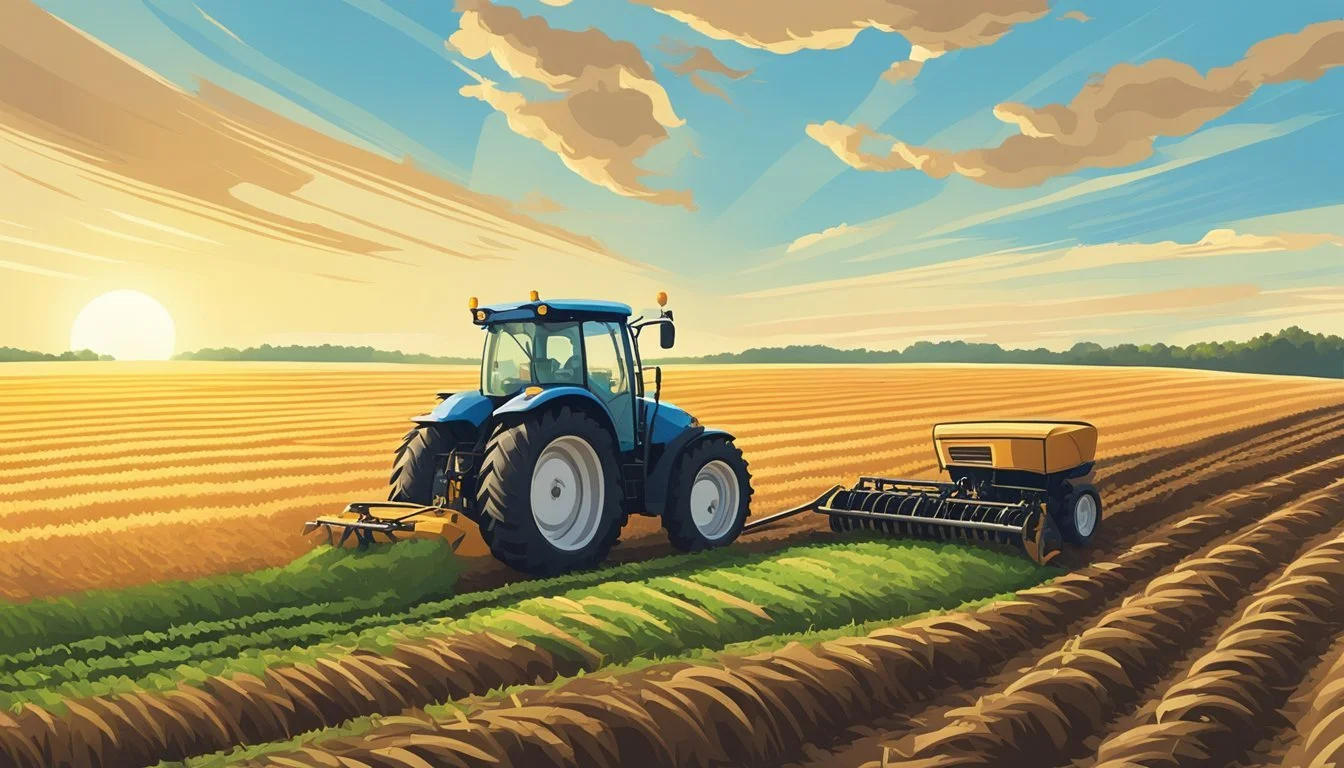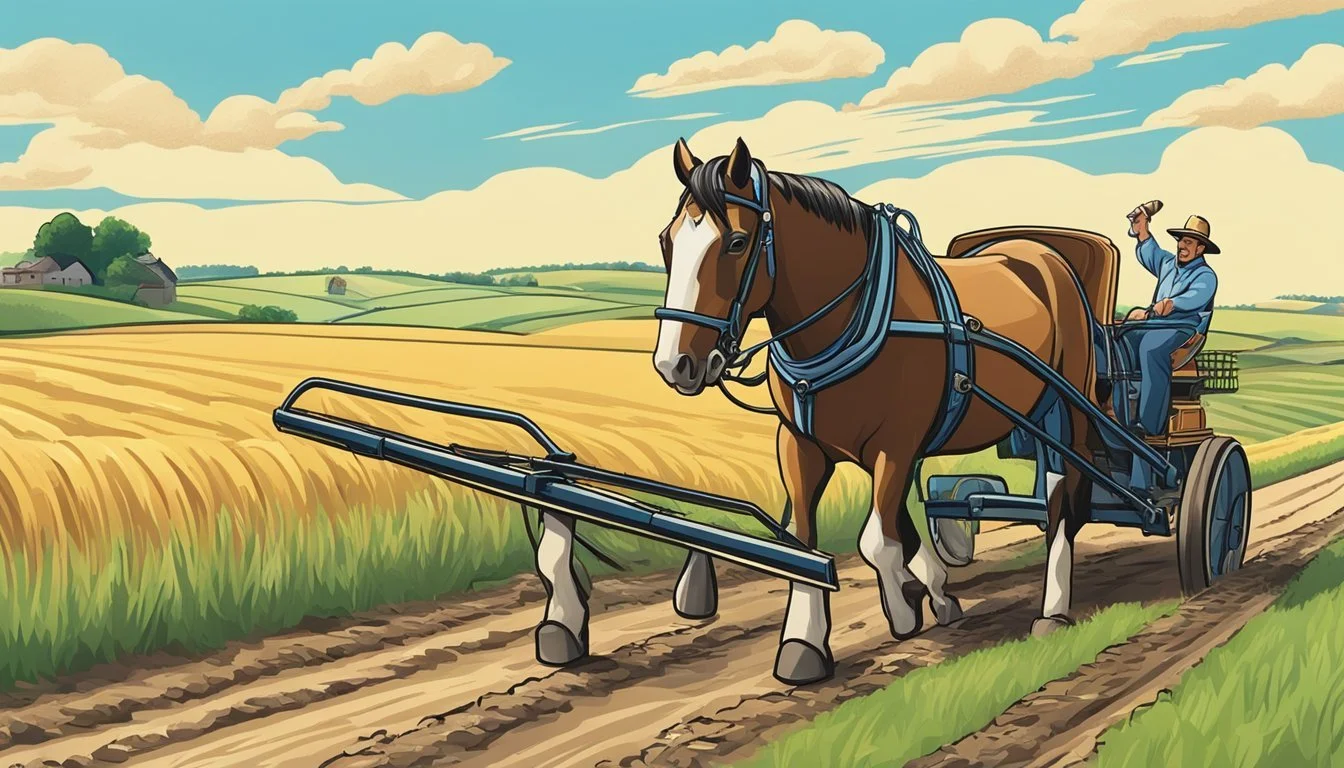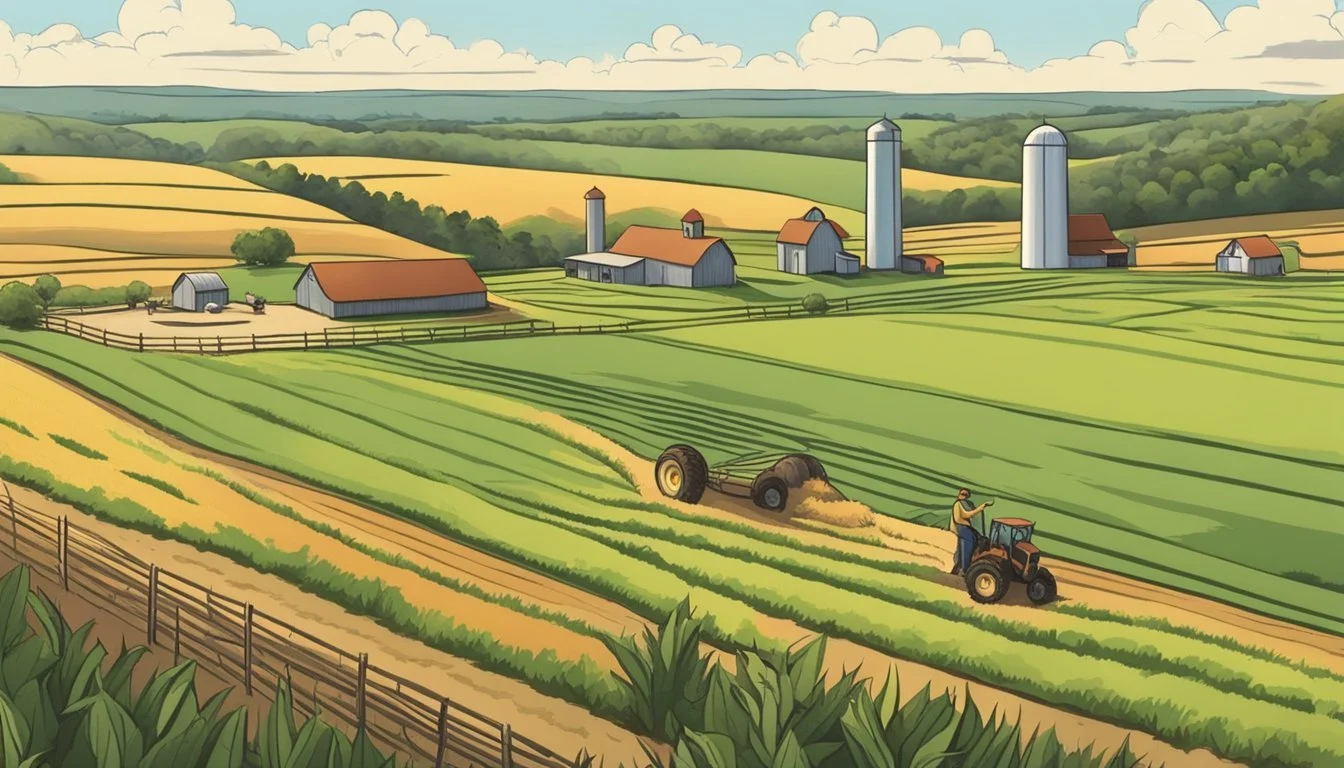Right to Farm Law in Iowa
Understanding Its Impact on Agriculture and Community
The state of Iowa has long been recognized for its vital role in American agriculture, producing a significant portion of the nation's food supply and agricultural commodities. The Right to Farm Law in Iowa was established with the intent to protect farmers and their operations from nuisance lawsuits, as well as to preserve the availability and use of agricultural land for farming purposes. This legislative framework underscores the importance of farming to the state's economic and cultural fabric.
Despite the protective intention behind the Right to Farm Law, its existence has not been without controversy. Over the years since its inception in 1982, the number of farms in Iowa has seen a considerable decrease, raising questions about the effectiveness and implications of the law. Even so, all fifty states have enacted similar laws, demonstrating a widespread legislative approach to safeguarding agricultural practices.
In recent times, the Iowa Supreme Court has grappled with the constitutionality of elements within the Right to Farm Law. Challenges have arisen pertaining to how these laws intersect with the Iowa Constitution, particularly with respect to the rights of property owners and the broader community. Through these legal examinations and decisions, the Right to Farm Law continues to evolve, navigating the complex balance between agricultural interests and the rights of others impacted by farming activities.
Historical Context and Overview
Iowa's journey with right-to-farm laws presents a unique evolution aimed at protecting agricultural interests and managing urban sprawl. The legislation's impact on the Iowa landscape highlights the balance between agricultural and property rights.
Development of Right to Farm Law in Iowa
The right-to-farm law in Iowa, first enacted in 1982, served as a legislative response to the clash between farming activities and urban encroachment. Its primary goal is to protect existing agricultural operations from nuisance lawsuits which often arise as residential areas expand into established farming regions. Over the years, the number of farm operations in Iowa has decreased, which reflects a nationwide trend towards fewer, larger agricultural enterprises.
Comparison with Other States' Farm Laws
Iowa's approach to right-to-farm laws shares similarities and differences with other states. For instance, Indiana and Minnesota also have laws offering nuisance suit protections, demonstrating a common regional focus on agriculture. However, precise provisions, such as the statute of limitations for nuisance actions, vary from state to state. While Iowa's laws are robust in the pursuit to shield farmers, the variations across state lines often reflect differing regional priorities and agricultural landscapes.
Key Provisions of Iowa's Right to Farm Law
Iowa's Right to Farm Law, codified in Iowa Code § 657.11, enshrines certain protections for agricultural operations. This piece of legislation plays a crucial role in balancing private property rights with agricultural needs.
Statutory Immunity and Regulations
The Right to Farm Law in Iowa provides statutory immunity to farming operations, including animal feeding operations (AFOs) and feedlots, shielding these entities from nuisance lawsuits. These protections are not absolute; they apply under the condition that the operations comply with pre-existing federal and state regulations. This immunity is significant in fostering a stable environment for agriculture by reducing the threat of litigation that could otherwise disrupt farming activities.
Inalienable Rights Clause and Property Rights
Iowa's Right to Farm statute touches upon the inalienable rights clause of the Iowa Constitution, which is meant to protect citizens' property rights. Historically, the Iowa Supreme Court has found that section 657.11 of the Iowa Code does not infringe upon these constitutional rights. The balance between upholding farmers' rights to operate without undue interference and protecting neighboring landowners' property rights is central to the application of the law.
Exceptions and Limitations of the Law
The Right to Farm Law has tailored exceptions that prevent its blanket application. Significantly, immunity is not extended to operations that fail to adhere to relevant environmental statutes and regulations. Moreover, the law specifies that an operation must not unreasonably interfere with another person's use and enjoyment of their property for substantial periods of time. These limitations ensure that the law protects legitimate farming operations while not permitting unchecked agricultural practices that could harm others.
Legal Precedents and Significant Cases
Iowa's Right to Farm laws have been subject to a number of significant legal challenges that shaped their current interpretation and application. These cases have tested the balance between agricultural interests and individual property rights, and the ruling of each case has set important legal precedents.
Gacke v. Pork Xtra, L.L.C. and Its Legacy
In 2003, the Iowa Supreme Court addressed the Right to Farm law in Gacke v. Pork Xtra, L.L.C. The court held that the law violated the inalienable rights clause of the Iowa Constitution as applied to a particular couple who suffered significant hardships caused by a neighboring confinement feeding operation. This case established what is known as the "Gacke Test"—a three-part analysis to assess whether the law unconstitutionally impairs a person's use and enjoyment of their property.
Bormann v. Board of Supervisors and the 'Gacke Test'
The 'Gacke Test' evolved from the earlier case of Bormann v. Board of Supervisors. In this case, the Supreme Court of Iowa granted a summary judgment, which implied that the Right to Farm law could be a constitutional violation in cases where the nuisance caused unreasonable hardship. The 'Gacke Test' requires courts to examine the proximity of the complainant to the nuisance, the measures taken by the agribusiness to mitigate the harm, and the severity of the harm experienced.
Recent Challenges and Court Decisions
Recent years saw significant cases such as Honomichl v. Valley View Swine, LLC and Garrison v. New Fashion Pork LLP. In Honomichl, decided on June 22, 2018, the court again looked at the constitutionality of the Right to Farm statute. More recently, Garrison v. New Fashion Pork LLP intensified the scrutiny on Iowa Code § 657.11, where the Iowa Supreme Court revisited the statute's constitutionality, overruling an 18-year-old precedent and causing considerable legal discussion about the future of Iowa's agricultural nuisance law.
Impacts of Right to Farm Laws
Right to Farm Laws in Iowa have had a substantial influence on agricultural practices, property rights, and environmental oversight. These impacts are felt across multiple areas including farming operations, landownership, and regulatory measures.
On Farming Practices and Agricultural Production
Right to Farm laws in Iowa have provided animal feeding operations and farm operations with protections that enable them to maintain and expand their agricultural production. These laws shield such operations from nuisance lawsuits, potentially stemming from the odors or noise generated by their activities. For instance, intensive livestock production, which can create significant odors, is often safeguarded, allowing for continuity and growth in this sector.
On Landownership and Neighboring Landowners
For landowners and neighboring landowners, the presence of Right to Farm laws can sometimes lead to tensions. While farmers are afforded certain immunities from nuisance claims, neighbors may find themselves with limited recourse when it comes to issues like odor, pollution, or decreased property values. This legal balance aims to protect the agricultural industry's interests while striving for harmony with surrounding landowners.
On Environmental Regulations and Public Health
Iowa's Right to Farm laws intersect with environmental regulations such as the Clean Water Act and oversight by the Iowa Department of Natural Resources. While the laws support farming practices, there is an inherent responsibility on farm operations to adhere to environmental standards. Compliance with regulations designed to protect water quality and public health is fundamental, even within the framework of Right to Farm protections.
Controversies and Public Debates
Right to Farm laws in Iowa have been subject to intense controversy and public debate, revolving around their impact on local communities, the tension between agricultural and urban interests, and the economic implications for both farmers and residents, with media coverage highlighting these divisive issues.
Nuisance Claims and Community Relations
Iowa's legislature grants statutory immunity to farmers against nuisance claims, particularly concerning odor and other byproducts of animal agriculture like manure. However, such protections have been contested in courts, where the Iowa Supreme Court has addressed the constitutionality of these immunities. Neighbors often raise concerns about nuisances, particularly odors emanating from operations like hog farms, arguing that they impact their quality of life and property enjoyment.
Animal Agriculture and Urban Sprawl
The expansion of animal agriculture has collided with urban sprawl, leading to increased friction between farming operations and residential areas. As cities expand, new residents adjacent to longstanding farms bring forward nuisance suits due to unfamiliarity with the realities of agricultural production, including expected odors and noises, which can challenge the traditional practices of rural land use.
Economic Implications and Media Coverage
Media outlets play a critical role in shaping the public's understanding of the economic stakes involved in nuisance claims related to right to farm laws. They report on the economic importance of agriculture to Iowa's economy, while also highlighting the costs and disruptions that nuisance suits may impose on the industry. Coverage tends to frame the debate as a battle for the rights of farmers to maintain their livelihoods against the pressures of residential expansion and community members' rights to a nuisance-free environment.
Legislative and Judicial Analysis
Iowa's Right to Farm laws have faced significant legal scrutiny, particularly concerning their alignment with the Iowa Constitution. A rigorous examination into the constitutionality of Iowa Code § 657.11 showcases the judiciary's evolving interpretation of the law's validity and the implications for agricultural practices and property rights in the state.
Evaluating the Constitutionality of the Law
Iowa Code § 657.11 serves as a statutory shield for animal agriculture producers against nuisance suits, effectively protecting farm operations that comply with existing laws and predate any complaints filed by neighbors. The Iowa Supreme Court has ruled on several occasions on the constitutionality of this statute. In Garrison v. New Fashion Pork, LLP in 2022, the court upheld the statute, affirming that it does not violate the inalienable rights clause of the Iowa Constitution. This judicial stance has been a reversal from an earlier precedent, implying a stricter scrutiny applied to the law in contemporary analyses.
Rational Basis Review and its Outcomes
The rational basis review is a standard of constitutional analysis applied by courts to determine if a law is rationally related to a legitimate government interest. Iowa's Right to Farm statute has withstood the rational basis test, with courts finding that the legislation aligns with state interests in preserving agricultural operations and sustaining the industry's vitality. Statutes like these are typically subjected to this level of review, where they are presumed to be constitutional as long as some reasonable justification for the law can be discerned.
Future Directions for Right to Farm Legislation
The evolution of Right to Farm laws, their judicial interpretations, and the outcomes of legal challenges suggest that while the current Iowa statute remains constitutionally sound, future legislative adjustments might occur. Factors influencing potential revisions could include shifts in social priorities, environmental concerns, and the economic landscape of farming in Iowa. Legal analysts advocate for ongoing observation of these laws to ensure that they continue to serve the balance between protecting farmers and addressing neighbors' rights.







